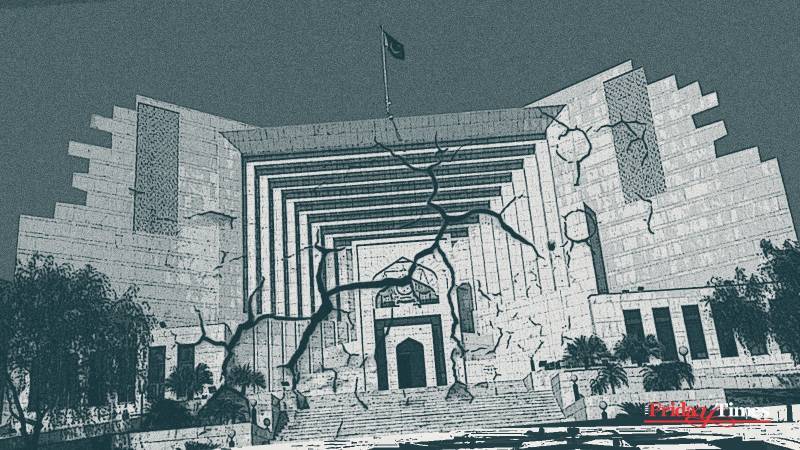
Over two months after issuing a short order and after receiving representations from the Election Commission of Pakistan (ECP), the Supreme Court suddenly woke up from its slumber, and eight members - forming the majority of the 13-member full court bench which heard petitions filed by the Sunni Ittehad Council on being awarded reserved seats in Parliament-and issued a clarification.
The timing and manner in which the eight-member bench of the Supreme Court issued the clarification to its July 12 short order, despite the bench's 'good intentions' to do complete justice, has, in fact, managed to raise quite a few eyebrows. Equally disturbingly, it has left many questions unanswered. Perhaps the most significant aspect of the unfolding drama is that no court hearing was scheduled/listed, and the bench, feeling no need to hear the parties—especially the Election Commission of Pakistan (ECP)—which had originally sought the clarification almost immediately after July 12.
For laymen and lawyers alike, the eight-member bench felt compelled to obviate the need for a proper hearing and 'directing' its registrar to upload the order on a Saturday is quite galling; it creates a dangerous and unenviable precedent. Moreover, the potential for such orders, passed on the judicial side, to wreak thermonuclear-type destruction in their wake is an obvious premonition that the simplest of souls can feel and foresee, let alone the panel of eight senior jurists in the land.
Many people feel that one faction of the Supreme Court feels threatened by losing its 'right' to have the final say in interpreting the law and the Constitution and, hence, governance, especially in terms of who will head the Supreme Court, has resulted in the unthinkable of such proportions as described above. It will, therefore, be fair to say that in the backdrop of the vicious breaking news cycle feverishly churning out news and views on the 'constitutional package' being tabled in the Parliament, the eight honourable judges of the Supreme Court have seen it fit to jump in the fray. It, of course, goes without saying that the judicial overreach currently on display is one big bitter fruit of the Lawyers' Movement, which successfully propelled Iftikhar Muhammad Chaudhry as the chief justice and, by extension, the undeclared ruler of Pakistan.
The issue of PTI intra-party elections is pending before the ECP and the eight-member bench, discovering and then unleashing its overreach, is not only incomprehensible but also beyond the pale of jurisdiction developed thus far in this country
One of the many alarming aspects of the July 12 short order, and its equally jarring clarification issued on a Saturday, is the fact that the above do not safeguard the independence of the ECP but have, sadly, tended to undermine the same. It is a sad reflection on the unique jurisprudence applied in the orders in question that those have purportedly treated the ECP at par with a mere department or a ministry of the government, which is a clear misconception of constitutional law at best. Echoes of one member implementation bench of the equally lopsided Panama judgment, comprising former justice Ijazul Ahsan, anyone?
Also, the clarification order seems to assume sweeping powers akin to that of an unanswerable monarch to decide matters which are pending in other jurisdictions. For instance, the issue of Pakistan Tehreek-e-Insaf's (PTI) intra-party elections is pending before the ECP and the eight-member bench, discovering and then unleashing its overreach, is not only incomprehensible but also beyond the pale of jurisdiction developed thus far in this country and even beyond.
Putting aside the proposed denuding of the Supreme Court of its powers to potentially throw its weight around—an unsavoury relic from the days of Iftikhar Muhammad Chaudhry—the helter-skelter of the parliamentary proceedings in the last few days has created more confusion than it has inspired confidence amongst the general public. The know-it-all, foolishly arrogant and reckless approach of the government's legal team confusingly circulating three or four contradictory constitutional amendment bills that completely shredded any chance of getting allies on board. The 'Aristotelian' logic of the plan to spread self-created confusion to browbeat and then eke out approval from its parliamentarians, let alone its coalition partners, is not only infantile but may also prove politically suicidal for the Pakistan Muslim League-Nawaz (PML-N) in particular.
The charade is attaining tragi-comical proportions with each passing day. Time will tell who wins, but one thing is clear like a bright sunny day: the country has already lost.
Do the marauding hordes realise?

